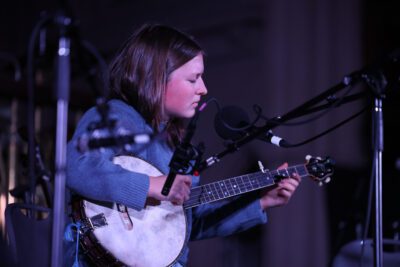The Best Places to Volunteer in Brooklyn

826NYC is a great place to volunteer in Brooklyn.
You never stop learning, really, especially in this city. But for most people, once college ends, opportunities to expand the mind or acquire new skills become less structured, less guided. We’re creatures of habit, and as we age our habits often orient themselves away from esoteric interests or prolonged study, and toward work, family, money. It’s easy to fall into a routine in which learning new things becomes ambient and incidental.
There are an increasing number of ways to combat this. So-called adult education programs are on the rise, alongside community-driven classes at places like Brooklyn Brainery and Brooklyn Skillshare that will teach you everything from composting to business management to the history of Scotch. Brooklyn seems to be continuously educating itself. It’s a lot easier to get better at stuff.
One of the very best (and also the cheapest) ways of picking up new skills is by volunteering. New York is replete with volunteer gigs that will shake up your humdrum routine and teach you a thing or two in the process. Here are some of the best places to find a volunteer opportunity that best suits your interests.
1. NYC Service
Community-level volunteering is one of the best ways to give back to Brooklyn. On NYC Service’s website, you can search by zip code or area of interest to find opportunities in your own neighborhood. The organization, which is run by the Mayor’s Office, has created 21 different service initiatives, including everything from CPR training to legal services to a youth-oriented summer program, that aim to strengthen local communities, improve education and public health, and protect the environment.
2. Do Good Right Here
Do Good Right Here is the online home of the Brooklyn Community Foundation’s volunteer initiative. Their main goal is to raise awareness of local non-profit organizations by encouraging locals to volunteer at them. Like NYC Service, you can search for opportunities online by both zip code and area of interest. The lengthy list of participating organizations are grouped into five categories: Arts for All, Caring Neighbors, Community Development, Education and Youth Achievement, and Green Communities.
3. New York Cares
New York Cares is New York City’s largest volunteer organization, running programs for more than 1,300 nonprofits, city agencies, and public schools. The focus is primarily on social issues, including literacy, job readiness, and youth service programs–all crucially important in a city of such inequality. For all New York Cares projects, first-timers are required to take a quick orientation before volunteering.
4. Brooklyn Community Services
Brooklyn Community Services envisions a unified borough in which all members have access to an “excellent education, job opportunities, safe and affordable housing, and quality and affordable health care and wellness programs.” The BCS offers services like early childhood education, at-risk family counseling, disaster relief and recovery, and job training. Volunteers are always needed to see out their mission to empower at-risk individuals and families, and adults with mental illness or developmental disabilities.
5. Catchafire
Catchafire is a bit like a volunteer broker: it matches professionals who want to share their skills with nonprofits who could use their help. The nonprofits will post listings seeking volunteers to help develop marketing plans, build websites, sharpen brand messaging, design merchandise, and so on. Volunteers can apply for individual projects, or have projects recommended based on their interests and skill sets.
6. TimeBanksNYC
TimeBanks is another project of the Mayor’s Office, and it operates on one enticing principle: that people provide skills and services to one another in exchange for other, different skills and services provided to them. It’s a skill swap, essentially; a clearinghouse for services needed and offered. For every hour that members provide a service or share a skill with another member, they earn a time credit for the exchange. This time credit can then be redeemed for a service from someone else, and so on. Want to learn a how to play piano? Teach someone how to speak Spanish.
7. Citizen Schools
The “achievement gap” in our schools–which is the persistent disparity in educational performance between students of differing socioeconomic class–is really an opportunity gap. Students in upper-income families are afforded the benefit of more extracurricular enrichment activities and high-quality instruction than students from lower-income families. Citizen Schools’ mission is to close this opportunity gap. They do so by mobilizing volunteer teams to middle schools in low-income communities to provide longer learning days that are rich with opportunities.
This article is part of a special series on jobs and education brought to you by Shillington School.
You might also like 




















